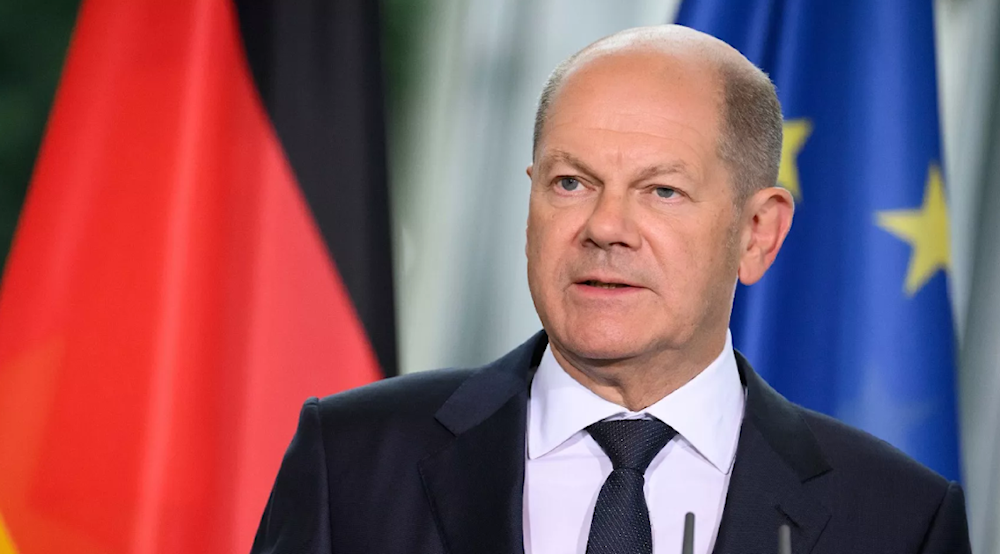Germany's government coalition facing threat of collapse
Germany's chancellor noted that all parties in the ruling coalition - his Social Democratic Party (SPD), the Greens, and the Free Democratic Party (FDP) - must work together to establish an agreement, which will take a lot of "intense discussions."
-

German Chancellor Olaf Scholz speaks during a news conference on September 14, 2022. (AP)
German Chancellor Olaf Scholz voiced optimism on Tuesday that the government coalition will be able to resolve its strong disagreement over economic policies.
Scholz explained that when it comes to the future work of the government, it's about commitment to the country, not ideology, and that negotiations on the budget, economy, labor, industry, and other key issues must be focused on achieving shared progress.
During a joint press conference with Somali President Hassan Sheikh Mohamud, Scholz voiced that "One thing is clear: that will be possible."
He further noted that all parties in the ruling coalition - his Social Democratic Party (SPD), the Greens, and the Free Democratic Party (FDP) - must work together to establish an agreement, which will take a lot of "intense discussions."
Last week, German media leaked a paper created by Finance Minister and FDP leader Christian Lindner, which included a list of economic recovery recommendations.
These efforts, however, contradict the SPD and Greens' agendas, putting the government on the verge of collapse.
According to Bild, Scholz called an emergency SPD conference late Sunday to establish the party's approach for impending negotiations with coalition partners.
Lindner's displeasure with German economic strategy has sparked concerns that the coalition may collapse. On Friday, German government spokesperson Steffen Hebestreit stated that the government will most likely continue to work until the next elections, which are due next fall.
Germany's ruling coalition facing decisive 2025 budget standoff
The heated argument regarding Germany's budget issues is not new.
AFP reported in June that the German government is embroiled in a heated dispute over the 2025 budget, raising concerns about the stability of Chancellor Olaf Scholz's coalition,
FDP Finance Minister Christian Lindner, known for his strict fiscal policies, demanded at the time nearly 30 billion euros ($32 billion) in savings, a proposal met with resistance from the Greens and SPD.
Experts warned at the time that this budget standoff could potentially collapse the government.
The Sueddeutsche Zeitung daily highlighted the significance of these talks, suggesting they will determine whether the coalition remains in office.
The German Finance Ministry has projected tax revenues for 2025 to be 11 billion euros lower than expected. Additionally, a November ruling by Germany's top court found that the coalition violated the "debt brake," a constitutional limit on borrowing, further restricting new spending.
The coalition parties are also grappling with declining support following poor results in the recent European Parliament elections, where the opposition conservative CDU-CSU bloc and the far-right AfD came first and second, respectively.
A major point of contention is also unemployment benefits. Lindner advocates for restricting payouts, arguing they are too costly and do not provide enough of an incentive to get people to return to work. The SPD, however, opposes this idea, as improving benefits was a key campaign promise in 2021 aimed at regaining lower-income voter support.

 3 Min Read
3 Min Read








